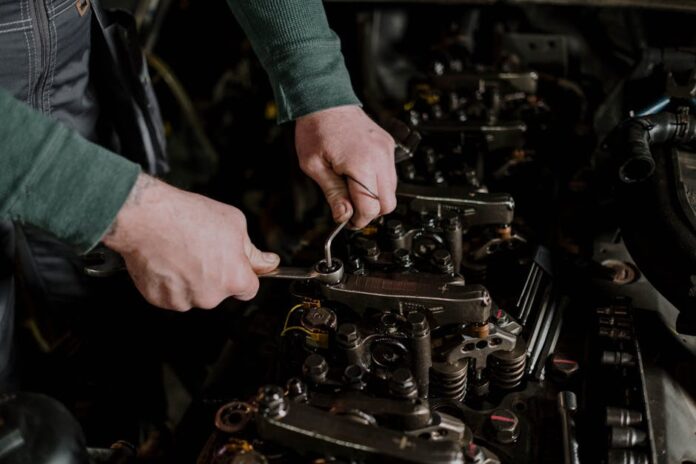Owning a car is often a significant investment, and maintaining it properly can greatly enhance its lifespan. Perhaps you’ve heard stories of vehicles that have lasted decades. Their secret? Consistent and effective maintenance. Not only does proper car care prevent breakdowns, but it can also safeguard your car for years to come. By maximizing longevity, you also maximize your investment. Maintaining your vehicle ensures you enjoy a smooth, reliable ride, and could save you from unforeseen expenses in the long run.
Regular Maintenance
Regular maintenance is the cornerstone of a long-lasting car. Always adhere to your vehicle’s specific manufacturer’s schedule. This typically includes an array of routine checks. Begin with oil changes. This simple procedure, usually required every 3,000 to 5,000 miles, is essential. Quality oil ensures engine parts work seamlessly and reduces wear and tear.
Next, don’t neglect fluid checks and replacements. Essential fluids like coolant, brake fluid, and transmission fluids should be regularly monitored. Ensuring they are at optimal levels prevents engine overheating and preserves crucial system functions. Furthermore, air filter replacements are a must. A clean air filter boosts fuel efficiency and enhances engine performance.
Tire upkeep is equally vital. Regular tire rotations and pressure checks are essential for balanced wear and better fuel efficiency. Checking your brakes periodically is not just about safety—it’s about vehicle performance. Proper brake function ensures both your safety and car health.
Use Quality Parts and Fluids
Using quality parts and fluids can make a world of difference in your car’s performance. Whenever replacements are necessary, always opt for parts that meet or exceed your car’s specifications. Substandard parts might seem cost-effective in the short term, but they can lead to costly repairs later.
Moreover, always use the engine oil grade recommended by the manufacturer. It might seem minor, but oil variations can affect performance. Similarly, the right fuel type matters—especially as engines today are more sophisticated and designed with specific fuels in mind. A mismatch might lead to engine knocking or reduced efficiency.
Practice Good Driving Habits
How you drive can significantly impact your car’s longevity. Aggressive driving, such as rapid acceleration and hard braking, strains the engine and other parts. By driving smoothly, you not only ensure a relaxed ride but also prevent undue stress on the vehicle.
Moreover, short trips can take a toll. They prevent the engine from reaching its optimal operating temperature, which could affect performance over time. If possible, combine short trips to allow the engine to warm up properly and function efficiently.
Avoid overloading your vehicle as well. It puts unnecessary stress on the suspension, brakes, and engine. Be aware of your car’s weight limits and ensure you stay within those parameters. Simple measures like these will pay off in the long run.
Keep it Clean
Maintaining cleanliness is not merely about aesthetics—it’s protection. Regular washing and waxing shield the car’s exterior from rust and corrosion. If you reside in areas with harsh weather or frequent salt exposure, these actions are crucial.
Inside your car, cleanliness matters too. A clean interior prevents allergens and ensures the car doesn’t harbor unpleasant odors. Simple vacuuming and upholstery care can make a significant difference. Plus, a neat car is more enjoyable to drive.
Address Issues Immediately
Ignoring warning lights or unusual noises can turn minor issues into major, costly repairs. Your car communicates with you—in either lights or sounds—to indicate something isn’t right. Acting promptly and investigating these signals can save you a headache later.
If you notice changes in your car’s performance, don’t dismiss them. Maybe it’s a subtle decrease in fuel efficiency or a faint rattling sound. Addressing what’s different ensures any arising problem is tackled before escalating.
Tire Care
Tire care extends beyond rotations and pressure checks. Your tires are your car’s connection to the road, affecting everything from fuel efficiency to safety. Regular tire pressure checks ensure balanced wear and optimize fuel use. Overinflated or underinflated tires can be dangerous and inefficient.
Periodically rotating your tires guarantees even wear. It contributes to a smoother ride and prolongs tire life. Wheel alignment, another crucial aspect, shouldn’t be overlooked. A misaligned vehicle can lead to uneven tire wear and affect steering and suspension components.
Battery Maintenance
Batteries don’t usually give warnings before they fail. Around the three-year mark, it’s wise to monitor your battery’s health. Keeping terminals clean prevents corrosion, which can lead to connectivity issues.
Ensure that the connections are tight. Loose connections can diminish the battery’s efficiency and lead to starting problems. Frequent checks and maintenance can prevent a sudden power loss.
Additional Tips
For cars with manual transmission, using the parking brake regularly keeps it functional. Even on flat surfaces, it’s beneficial to engage it occasionally. It helps in maintaining the parking brake’s integrity over time.
Driving your car once a week is a good practice. It keeps the battery charged and ensures all fluids circulate effectively. A stagnant vehicle can develop a myriad of issues, from flat spots on tires to a drained battery.
If you’re living in areas prone to rust, consider investing in rust protection treatments. Especially relevant in harsh winter climates or coastal areas, this can significantly extend the life of your car’s body.
Conclusion
Proper maintenance can enable your vehicle to serve you well past the 200,000-mile mark. It’s not just about fixing problems as they arise but preventing them from happening. Keeping detailed records of all maintenance actions is vital. Not only does it guide you in future repairs, but it can also be valuable if you decide to sell. An organized record portfolio assures future buyers of the car’s condition.
For more insightful tips and strategies on maintaining your vehicle and getting the most out of your investments, be sure to explore expert advice and stories on our website.
